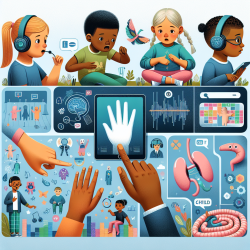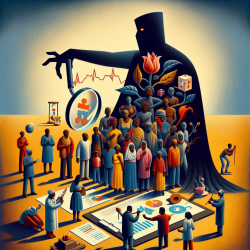Introduction
Concussions, often referred to as mild traumatic brain injuries (mTBI), have become a significant public health concern, particularly in the context of sports. However, the need for comprehensive management extends beyond sports-related injuries. The University of Kansas Health System's Center for Concussion Management (CCM) provides an exemplary model of a comprehensive, interdisciplinary concussion program that addresses this need. This blog explores the key components of the CCM's approach and how practitioners can implement these strategies to enhance their concussion management practices.
Interdisciplinary Approach
The CCM's interdisciplinary approach involves collaboration across various medical specialties, including neurology, neurosurgery, sports medicine, pediatrics, and rehabilitation. This comprehensive model ensures that all aspects of concussion management are addressed, from initial diagnosis to long-term recovery. By integrating diverse expertise, the program provides a holistic view of patient care, which is crucial for effective concussion management.
Virtual Clinic Model
One of the innovative aspects of the CCM is its virtual clinic model. This approach allows for the unification of providers under a single program without the need for additional funding or space. By leveraging existing resources and voluntary participation, the CCM can provide standardized care across multiple departments. This model not only enhances efficiency but also ensures that patients receive consistent, high-quality care regardless of their entry point into the system.
Standardization of Care
Standardization is a cornerstone of the CCM's success. The program has developed standardized assessment tools, treatment protocols, and referral pathways to ensure consistent care. By implementing these standardized practices, practitioners can improve patient outcomes and streamline the management process. This approach also facilitates the sharing of best practices and continuous improvement within the program.
Outreach and Education
Beyond clinical care, the CCM places a strong emphasis on outreach and education. The program engages with local schools, sports teams, and community organizations to raise awareness about concussion prevention and management. By educating stakeholders, the CCM helps to change misconceptions and promote a culture of safety and awareness around concussions.
Implications for Practitioners
Practitioners looking to enhance their concussion management practices can draw valuable lessons from the CCM's approach. By adopting an interdisciplinary model, utilizing virtual clinic concepts, and standardizing care protocols, practitioners can improve patient outcomes and contribute to the broader effort of addressing concussion as a public health issue. Additionally, engaging in outreach and education initiatives can help practitioners become leaders in their communities and advocates for concussion awareness.
For practitioners interested in further research, the original study provides a comprehensive overview of the CCM's development and implementation. Developing a Comprehensive, Interdisciplinary Concussion Program offers detailed insights and data that can inform future program development and research efforts.










